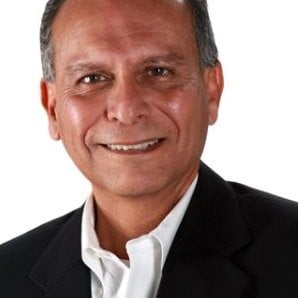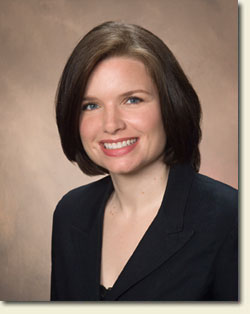Wind-down ordered despite professional advice that moving sick patients would stabilize finances
Part 11 in a Series
Central Health’s Board of Managers discussed the fate of Sendero Health Plans Inc. in executive session for some two and a half hours the evening of Wednesday September 12. That closed-door session included a video conference with the head of an actuarial consulting firm who indicated the insurance provider could be saved.
The conclusion drawn by the actuary, whose expertise involves analyzing the financial consequences of risk and uncertainty, was that moving sick patients from the Medical Access Program and providing them with insurance under the Affordable Care Act (ACA) would put Sendero’s finances on a solid footing.

That advice given by Donna Novak, president and founder of NovaRest Actuarial Consulting, was actually a second opinion, and both actuarial firms agreed: moving at least one hundred sick patients from the Medical Access Program (MAP) to Sendero Health Plans to be covered by insurance policies under the ACA would stabilize Sendero’s finances and avoid the need for more cash infusions from Central Health. In addition, moving significantly more sick patients from MAP to Sendero would result in a sizeable surplus that would flow back into Central Health’s coffers.
Despite professional advice that, under those scenarios, Central Health would no longer have to pump up Sendero’s finances, the Board of Managers voted 4-3, with one abstention and one absent, to wind down operation of its nonprofit health insurer that provides insurance for some 24,000 low-income individuals through the ACA. That also means the loss of Sendero’s insurance for about a thousand local low-income musicians who get help through Sendero partners SIMS and HAAM, for which Central Health again budgeted $1.5 million to subsidize premiums in FY19.
Those 24,000 individuals will have the chance to select a new plan during the open enrollment period that starts November 1 and ends December 15—if they can afford it. Sendero’s president and CEO, Wesley Durkalski, testified at the September 5 Board of Managers meeting that Sendero’s members “would have had to pay $105 per month more in premiums for the only competitor with a comparably broad network” of healthcare service providers.
Durkalski said in a telephone interview that the premium rates for all insurers participating in the ACA marketplace will be made public in late October.
Commissioners Court has final say
Tomorrow, the Travis County Commissioners Court will have the opportunity to question the Board of Managers decision regarding Sendero when it considers and takes action on Central Health’s FY19 budget and tax rates. (Items 35 and 36 on the agenda.) The meeting starts at 9am at 700 Lavaca St.

Some in the community are going to fight this decision to shut down Sendero and will try to get the Commissioners Court to overrule it. A day after the managers voted to shut down Sendero, Frank Ortega, director of the nonprofit LULAC District VII, emailed members of the Commissioners Court. The message states that LULAC (League of United Latin American Citizens) “has major issues with the action taken by Central Health on Sendero.” Chief among the criticisms were that most discussions about Sendero were held behind closed doors and the public was not aware of, and therefore could not weigh in on, whether to shut down Sendero.
“Who is going to enroll into Sendero this year if one knows that Sendero is going out of business?” Ortega wrote.
As to the issue of money, Ortega’s letter states that “There are millions of dollars in the Central Health budget being programmed for non-indigent healthcare projects including new programing to do ‘public health’ initiatives where the City of Austin already has this responsibility. Let’s go back to the basics per Central Health’s statutory mandate: healthcare for our poverty and indigent population.”
“Please do not approve Central Health’s budget unless they make this change,” the letter states.

Unfortunately for those who hoped to gain support for the Commissioners Count to intervene, Commissioner Brigid Shea—who as reported by The Austin Bulldog September 9, strongly supported the proposal to move the sickest MAP patients to Sendero’s health insurance—is out of the country and will not be present to argue for that action.
Motions and votes in Board of Managers decision

Manager Katrina Daniel moved to allocate $4 million to Sendero to fund its winding down. Manager Sherri Greenberg seconded. Managers Shannon Jones and Maram Museitif voted for the motion. Manager Charles Bell abstained because he is on Sendero’s board of directors. Manager Abagail Aiken was absent.
The $4 million was in addition to the $20 million for Sendero that was already included in the FY19 budget that managers approved the same night. Central Health had already invested a total of $88 million in Sendero in previous years. But in the two most recent years alone Sendero had to pay $78 million to a federal agency for “risk adjustment” because its patients were, on average, not sick enough. These are funds that Sendero could have been using to provide healthcare insurance for the sick MAP patients.

The wind-down motion came only after an earlier motion by Manager Cynthia Valadez and seconded by Manager Julie Oliver had failed.

Valadez’s motion would have added $6 million to the $20 million already approved for Sendero’s FY19 budget. The extra money was to be used to pay the premiums for sick MAP patients who would be moved and given Sendero’s insurance—but only if they volunteered. That motion failed as Valadez, Oliver, and board chair Guadalupe Zamora, MD, voted aye, while the other board members present voted nay.
Motions and emotions expressed
In making her motion Valadez delivered a passionate speech. “I think this is our one and only opportunity to be able to leverage our funds to bring on additional dollars from the feds,” she said, referring to the fact that, according to Durkalski’s testimony to the Board of Managers September 5, $1 million spent through Sendero’s insurance will draw an additional $5 million in federal reimbursements under the ACA.
“In funding Sendero and doing what’s ethically and morally right, we can reduce more of the uninsured in Travis County, which is close to 200,000 (people),” Valadez said.
“So we do for the least of our brethren we do for ourselves,” she said. Referring to the information supplied by actuaries, Valadez said, “We know there are limitations and risks, but we have an expert that has provided information to show possibilities that do exist and we can be successful in achieving our overall goals.”

Manager Maram Museitif said, “I’m a public health professional and I understand the value of enrollment. This has been difficult one. I’ve lost many hours of sleep.”
Although Museitif acknowledged the benefits of insurance and avoiding costly emergency room treatment, “as a good steward of tax dollars I can’t support what’s discussed. She said “We need to think of the mission.”
“We have 200,000 uninsured in Travis and to give people who have limited choices under the MAP program, to give them more options is the right thing to do,” said Manager Julie Oliver, who won the Democratic Primary to compete for the District 25 Congressional seat in the November election.
“By bringing people over (from MAP to Sendero) who are the health-neediest we have opportunity to bring people up. I support the neediest patients,” Oliver said.

“I believe this is exceedingly difficult decision for all of us here this evening,” said Manager Sherri Greenberg.
“Unfortunately there are issues beyond our control that create greater risk and volatility in this line of business,” Greenberg said. “It’s beyond our control. For that reason I would have difficulty voting for it.”
“Cynthia, I’m going to vote against your motion,” Daniel said. “We’ve seen a full range of projections, some rosy, some not. We thought we could make the numbers work and here we are having to invest more money.”
In regard to what some call financial “losses” of Sendero, Daniel said. “We haven’t lost money, it was spent on healthcare. On this project our path forward, in our view, we would have more financial stability and certainty on a different path.”
Undeterred by the opposition, Valadez said a recent survey showed by 75 to 80 percent of Americans would support the ACA. Further, she noted that a court recently ruled to uphold the way the risk adjustments are calculated.
“I don’t believe there will be more damage done to the ACA and we’ll be able to provide good tools to serve our population,” Valadez said.

Manager Shannon Jones, who has been on the Board for eight months, said that for five years Central Health has been hearing that, next year, Sendero’s finances will improve.
“I find difficult to support something that I would balance in terms of risk and investment,” Jones said. “I’m not supporting this effort.”
Durkalski was invited to make one last pitch before the managers voted. He said, “Chances are the ACA is not going away and it’s the best way to provide for the sickest among us.”
With that a roll call vote was taken and the Valadez’s motion failed.
With that, Daniel moved to wind down Sendero.
Valadez pleaded her case again, saying, “I truly believe this is our only opportunity to provide something unique and that we have not done before. This is it. If there’s any doubt in your mind, please consider voting against this. Sendero never proposed this before. We have never considered it. We have an opportunity to bring MAP patients over into comprehensive plan.”
Her plea fell on deaf ears and the majority voted to wind down Sendero.
Links:
2017 Central Heath Demographic Report, February 5, 2018 (56 pages)
Central Health Strategy Proposed FY 2019 and FY 2020 Strategies, based on Performance Review Recommendations adopted by Board of Managers July 25, 2018 (1 page)
Community Conversation: The 2019 Budget, July 31, 2018 (31 pages) with answers to the 11 polling questions annotated by The Austin Bulldog to show the audience’s feedback.
Related Bulldog coverage:
Sendero Turnaround Plan in Limbo: Sendero Health Plans has an attractive turnaround strategy but it’s not clear Central Health will commit, Part 10 in a Series, September 9, 2018
Central Health Hears Budget Feedback: Live audience interacts with slide show, answers questions via electronic polling, Part 9 in a Series, August 3, 2018
No-Bid Brackenridge Lease Approved: Two blocks of the 14.3-acre campus tract leased to limited partnership that won’t profit, Part 8 in a Series, July 17, 2018
Central Health Sponsorships Top $200,000: New spending adds $88,000 to the total having no connection to indigent healthcare, Part 7 in a Series, May 2, 2018
Dining and Shining on Taxpayer Dollars: Central Health spent more than $111,000 for sponsorships that have nothing to do with providing indigent healthcare, Part 6 in a Series, March 30, 2018
Central Health’s Checkup Delivered: Consultants delivered performance review completed eight months after contract let, Part 5 in a Series, February 14, 2018
Lawsuit Challenges Central Health Spending: Plaintiffs argue it is not legal to give $35 million a year to the UT Austin Dell Medical Center, Part 4 in a Series, October 18, 2017
Critic: Proposed Financial Policies “’Pointless’: Commissioners Court will vote tomorrow on Central Health financial policies for FY 18, Part 3 in a Series, October 9, 2017
Central Health Financial Policies Hotly Debated: $185 million given to Dell Medical School and Seton, with little to show for indigent healthcare, and $55 million more is on the way for FY 2018, Part 2 in a Series, September 29, 2017
Central Health Feedback Meetings Ill-Attended: Two public forums to gather opinions about the agency drew just nine speakers, Part 1 in a Series, August 27, 2017
Trust indicators:
 Ken Martin has been covering local government and politics in the Austin area since 1981. See more on Ken on the About page. Email [email protected]. This is his 11th article about Central Health and indigent healthcare arising out of his ongoing investigation that begin in early 2017.
Ken Martin has been covering local government and politics in the Austin area since 1981. See more on Ken on the About page. Email [email protected]. This is his 11th article about Central Health and indigent healthcare arising out of his ongoing investigation that begin in early 2017.
Who funds this work? This report was made possible by contributions to The Austin Bulldog, which operates as a 501(c)(3) nonprofit for investigative reporting in the public interest. You can help support this independent coverage by making a tax-deductible contribution.
An alphabetic list of donors who have contributed to The Austin Bulldog since the organization was formed in 2009 and the cumulative amount each person has given through August 28, 2018, are listed on the Contribute page.







